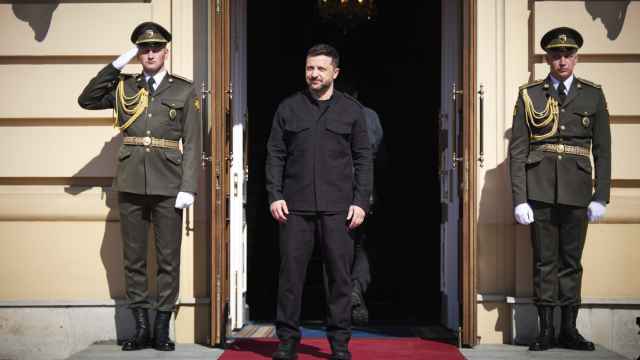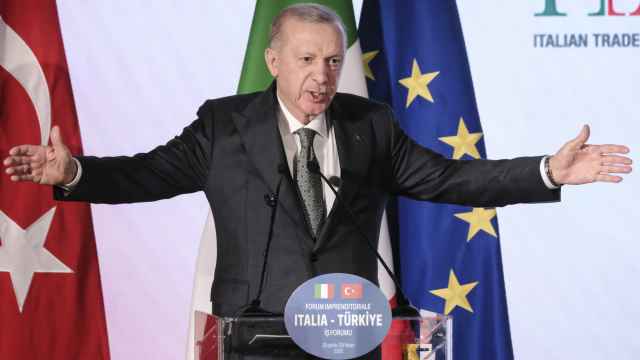The European Court of Human Rights (ECHR) has ordered Russia to free asylum-seekers from Syria who were being kept in custody awaiting deportation and pay them compensation for violating their rights, the court said on its website Thursday.
Each of the three men is to be paid 9,000 euros ($10,250) in damages, and the Russian government was ordered to pay them 8,600 euros jointly to cover their legal expenses.
The court ruled that the Russian authorities had violated articles 2 (right to life) and 3 (prohibition of torture and of inhuman or degrading treatment) of the European Convention on Human Rights when it ordered the men to be sent back to Syria, among other violations.
Two Syrian nationals — Abdulnasser Albik and Mokhammad Aljarkas from Aleppo — and a stateless Palestinian who was living in Damascus, Luai Mukhsen, arrived in Russia from Syria in 2013, their lawyer Natalya Golovanchuk told The Moscow Times.
The asylum-seekers were living in the Moscow region but March 2014 they moved to the neighboring Kaluga region and started working at a garment factory in the town of Maloyaroslavets, said Golovanchuk, a lawyer for the Civil Assistance Committee, an NGO that helps migrants.
Upon his arrival in the town, Albik applied for temporary asylum but was refused, the court statement said. No applications were registered from the other two men, their lawyer said, but they claim their attempts to apply were thwarted by bureaucracy at the local office of the Federal Migration Service (FMS).
In April 2014, all three men were arrested during a raid by FMS officers. A court in Maloyaroslavets ruled they should be deported for violating migration law: They had no visas, registration or work permits.
The men from Syria were put in the FMS center for foreign nationals awaiting deportation. Albik escaped from the center in August, and his whereabouts are currently unknown, the court statement said.
Golovanchuk appealed the Maloyaroslavets court's deportation ruling, but on May 27 last year, the Kaluga regional court rejected the appeal.
The next day, the lawyer appealed to the ECHR, and on June 10, the ECHR ruled that the refugees could not be deported until a final court decision was made.
“We are going to appeal the ruling on their deportation referring to the ECHR decision, we just need to translate it into Russian,” said the lawyer. She said the men would file temporary asylum applications based on the European court ruling.
Thursday's ECHR decision is the first of its kind concerning Syrian refugees in Russia. The court ruling will come into force in three months unless the Russian authorities appeal it.
Contact the author at v.kolotilov@imedia.ru
A Message from The Moscow Times:
Dear readers,
We are facing unprecedented challenges. Russia's Prosecutor General's Office has designated The Moscow Times as an "undesirable" organization, criminalizing our work and putting our staff at risk of prosecution. This follows our earlier unjust labeling as a "foreign agent."
These actions are direct attempts to silence independent journalism in Russia. The authorities claim our work "discredits the decisions of the Russian leadership." We see things differently: we strive to provide accurate, unbiased reporting on Russia.
We, the journalists of The Moscow Times, refuse to be silenced. But to continue our work, we need your help.
Your support, no matter how small, makes a world of difference. If you can, please support us monthly starting from just $2. It's quick to set up, and every contribution makes a significant impact.
By supporting The Moscow Times, you're defending open, independent journalism in the face of repression. Thank you for standing with us.
Remind me later.





